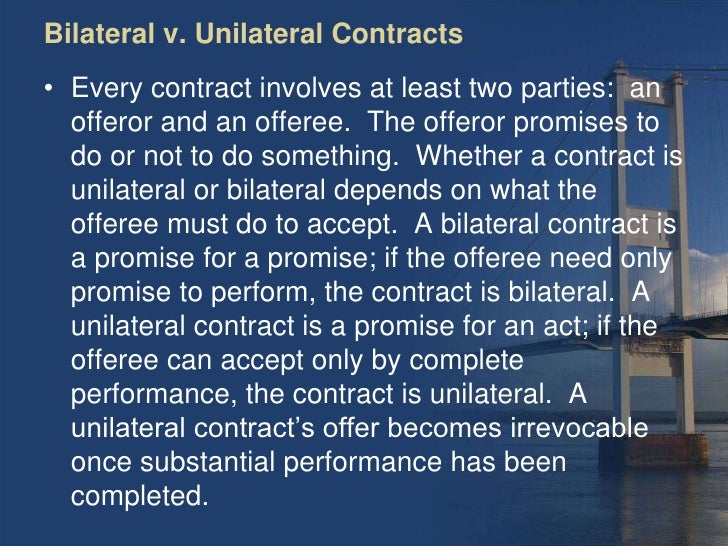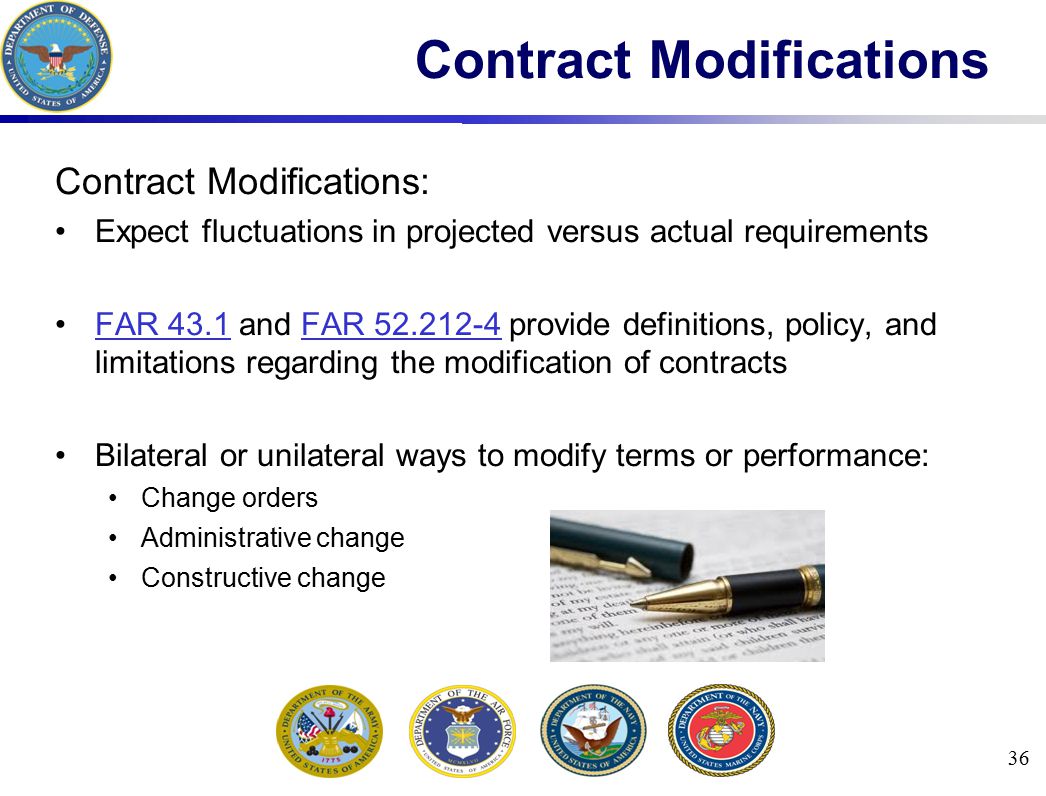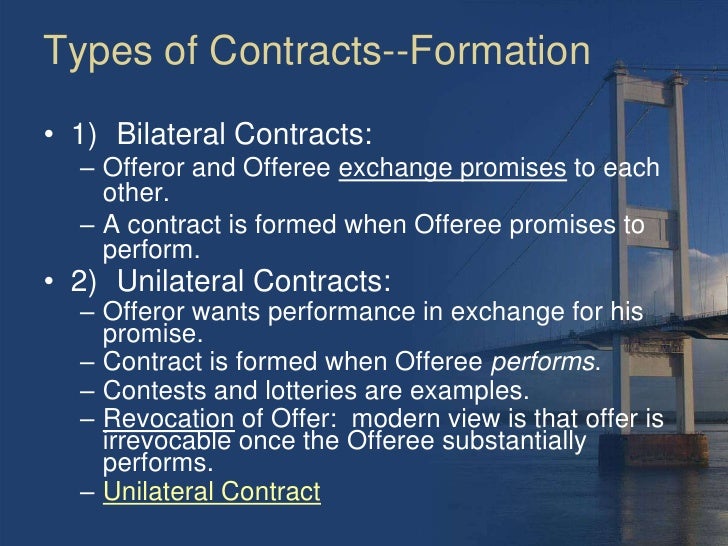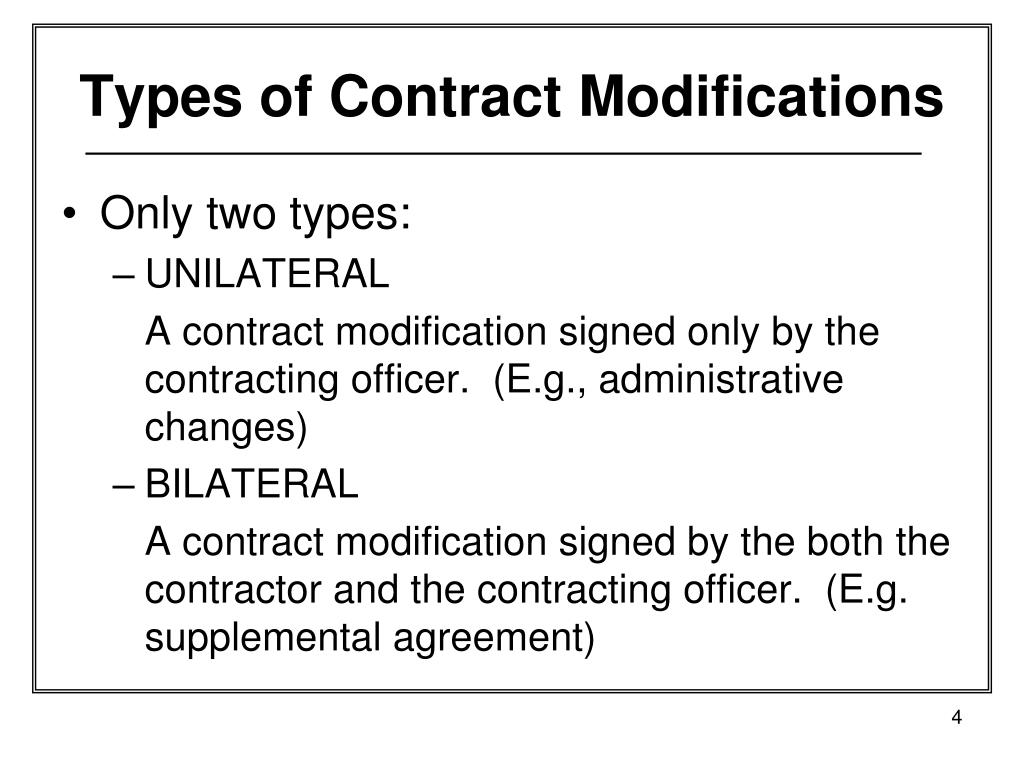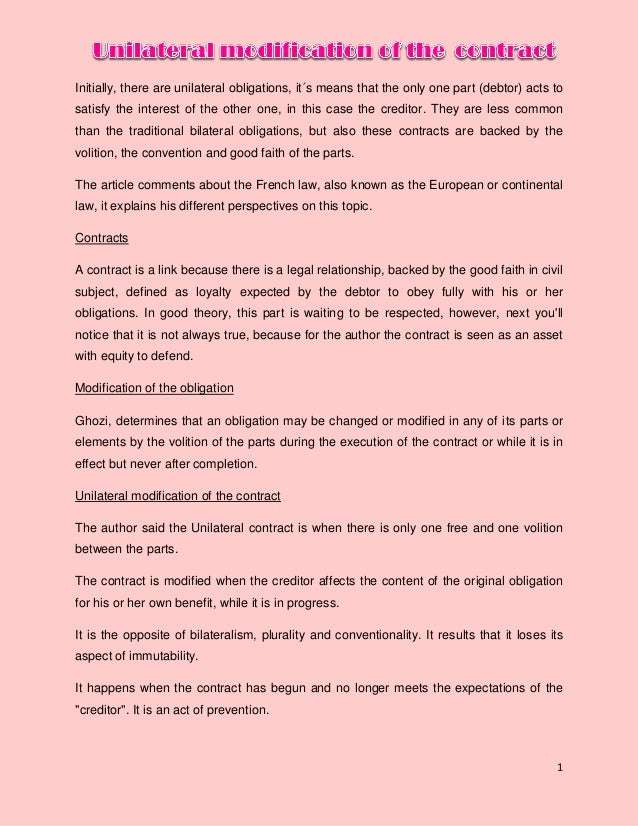Unilateral Vs Bilateral Contract Modification
Reflect other types of modifications.
Unilateral vs bilateral contract modification. Unilateral modifications are signed only by a contracting officer and are generally used to make administrative changes issue change orders make changes authorized by clauses other than the changes clause and issue termination notices. Bilateral versus unilateral modification. The other differences might be a bit more subtle. When discussing unilateral versus bilateral you are often referring to the type of contract that is being signed by multiple parties.
At first glance the most obvious difference between bilateral and unilateral contracts is the number of people or parties promising an action. A contract is defined as a written or spoken agreement between the two parties that is enforceable under the law. Unilateral contract as the name suggests is a contract in which the obligation of one party is yet to be performed. In contrast to a bilateral modification only the contracting officer can sign a unilateral modification and it can be used to.
Bilateral contracts need at least two while unilateral contracts only obligate action on one part. Bilateral modifications supplemental agreements are signed by both the contracting officer and the contractor. B unilateral a unilateral modification is a contract modification that is signed only by the contracting officer. Negotiate equitable adjustments when a change order occurs.
A bilateral modification is typically used to. Unilateral modifications are used for example to 1 make administrative changes.


